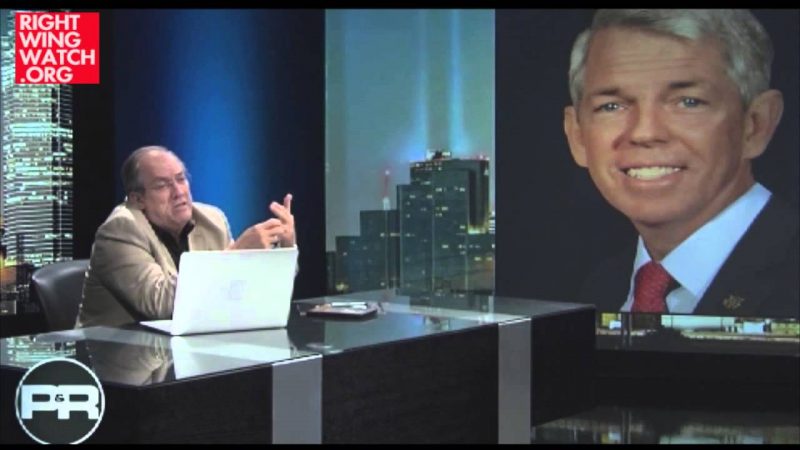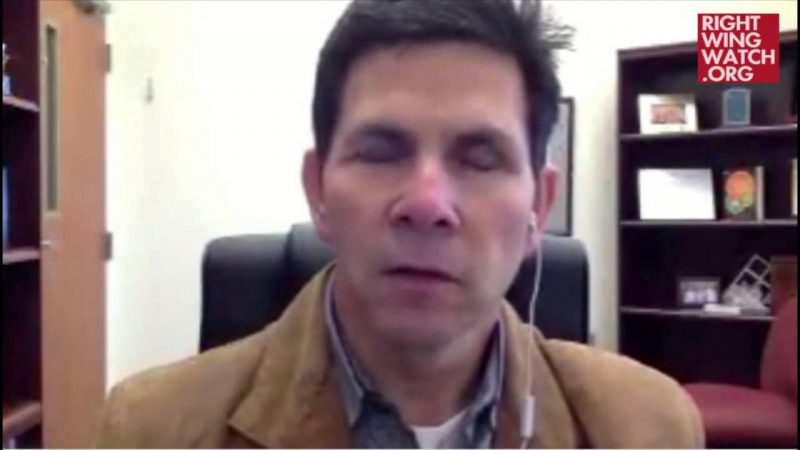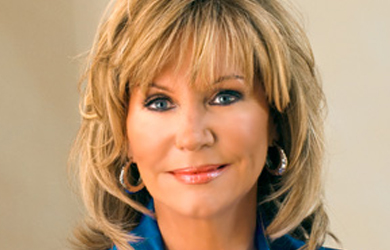Back during the heyday of Mike Huckabee’s presidential campaign, the candidate was being hailed as a “new breed” of evangelical, one who cared about issues like poverty and the environment in addition to traditional right-wing opposition to gays and abortion. As we have noted before, one of the key mis-perceptions about this so-called new movement is that its purported concern about issues beyond the standard Religious Right agenda does not mean that they are any more moderate on the core anti-gay, anti-abortion agenda that has driven the movement for the last several decades.
Heading into his faith forum over the weekend, Rick Warren was poised to emerge as the poster boy for this “new evangelical” movement – as Time Magazine put it:
A shift away from “sin issues” — like abortion and gay marriage — is reflected in Warren’s approach to his coming sit-downs with the candidates. He says he is more interested in questions that he feels are “uniting,” such as “poverty, HIV/AIDS, climate change and human rights,” and still more in civics-class topics like the candidates’ understanding of the role of the Constitution. There will be no “Christian religion test,” Warren insists. “I want what’s good for everybody, not just what’s good for me. Who’s the best for the nation right now?”
So that is the emerging narrative about Warren and the new movement he claims to represent. Yet, in the same Time Magazine article it is reported that, back in 2004, Warren was poised to “become the next Jerry Falwell or James Dobson” but decided against it because he realized that he could have a bigger impact if he appeared to remain neutral:
During the 2004 presidential election, he seemed to toy with using his new influence to become the next Jerry Falwell or James Dobson. Although he did not officially endorse George W. Bush, the mega-author made no secret of his preference. Two weeks before the election, he sent an e-mail to the several hundred thousand pastors on his mailing list, enumerating “non-negotiable” issues for Christians to consider when casting their votes: abortion, stem-cell research, gay marriage, euthanasia and human cloning. Shortly after the election, two attendees of a Washington meeting of conservative religious and political heavyweights remember Warren’s actively soliciting advice on how he might increase his clout with GOP politicians.
But upon exploring the role, Warren grew uncomfortable with it. “I have never been considered a part of the religious right, because I don’t believe politics is the most effective way to change the world,” he says now. “Although public service can be a noble profession, and I believe it is our responsibility to vote, I don’t have much faith in government solutions, given the track record. It’s why I am a pastor, not a politician. None of my values have changed from four years ago, but my agenda has definitely expanded.”
This is a vital point: In 2004, he listed as “non-negotiable” issues including abortion, stem-cell research, gay marriage, euthanasia and human cloning. Four years later, Warren says “none of my values have changed from four years ago, but my agenda has definitely expanded.” The issues of gay marriage and abortion are not any less important to the “new evangelical” movement – in fact, they remain at the center of its agenda – it is just that these issues are getting glossed over by a media enthralled with the spectacle of conservative Christians who talk about things like poverty and climate change.
Heading into the event, Warren was declaring that, since it is his job as a pastor to shepherd “Democrats and Republicans and liberals and conservatives and moderates” he wasn’t going to ask “gotcha questions” but instead as “heartland questions” whatever that means. In fact, all this moderate sounding talk was terrifying the Right – so much so that some of them had to organize a late-night conference call with reporters in order to offer up the right-wing perspective on the event. But, as it turned out, Warren’s questions were so in-line with their own agenda that they could barely contain their glee – in fact, one pre-conference critic went so far as to issue a press release saying the event was even “better than I had prayed it would be.”
And why was that? Because, for all of Warren and the “new evangelical’s” talk of issues beyond the standard right-wing agenda, when given the opportunity to press his issues with the candidates, Warren reverted to type, asking John McCain questions about same-sex marriage, abortion, judges, faith, evil, adoption, faith-based organizations, and religious persecution while asking next to nothing about poverty or climate change or any of the other issues that are said to make up this new movement’s expanded agenda.
To see this dynamic at work, just take a look at this interview Warren did with Dan Gilgoff of Beliefnet in which he criticizes Barack Obama for his answer on when life begins and again asserts that, while he is trying to expand the agenda, the members of this new evangelical movement are “not leaving [the] pro-life [position]” and asserts that Democrats are “simply talking the lingo” and can’t win them over if they don’t have the correct “worldview”
When you asked Obama about when life begins, he punted, saying ‘it’s above my pay grade.’ Should someone running for the highest office in the land have a clear answer to that, or is that kind of ambivalence acceptable?
No. I think he needed to be more specific on that. I happen to disagree with Barack on that. Like I said, he’s a friend. But to me, I would not want to die and get before God one day and go, ‘Oh, sorry, I didn’t take the time to figure out’ because if I was wrong then it had severe implications to my leadership if I had the ability to do something about it. He should either say, ‘No scientifically, I do not believe it’s a human being until X’ or whatever it is or to say, ‘Yes, I believe it is a human being at X point,’ whether it’s conception or anything else. But to just say ‘I don’t know’ on the most divisive issue in America is not a clear enough answer for me.
That’s why to say that evangelicals are a monolith is a myth, but the other thing is that you’ve been hearing a lot of the press talk about ‘Well, evangelicals are changing, they’re now interested in poverty and disease and illiteracy, and all the stuff I’ve been talking about for five years now. And I have been seeding that into the evangelical movement and it’s getting picked up and a lot of people are talking about doing humanitarian efforts. But I really think it’s wishful thinking on a lot of people who think they’re going to drop the other issues. They’re not leaving pro-life, I’m just trying to expand the agenda….
If an evangelical really believes that the Bible is literal–in other word in Psalm 139 God says ‘I formed you in your mother’s womb and before you were born I planned every day of your life,’ if they believe that’s literally true, then they can’t just walk away from that. They can add other issues, but they can’t walk away from the belief that at conception God planned that child and to abort it would be to short circuit the purpose.
Then it sounds like it would be unconscionable for an evangelical to vote for a pro-choice candidate like Obama.
Well, we’re going to see what happens. All I can say is you’ll see what happens. This is why there’s a difference between simply talking the lingo… after the 2004 election the Democratic pundits were saying ‘The Democrats lost in ’04 because they didn’t talk the language of faith.’ And actually that’s kind of, not paternalistic, but it’s talking down. It’s basically saying ‘If you just get the right words, then they’ll think you’ve got the lingo.’ And just because a person can say ‘God’ and ‘Jesus’ and ‘salvation’ and whatever doesn’t mean they have a worldview.
CBN’s David Brody accurately captured this dynamic in his preview of the forum last week. In sitting down with Warren and asking him about criticism he had been receiving from the traditional right-wing leaders who were afraid that he was watering down their traditional agenda with talk of issues beyond gays and abortion, Warren responded that even though he was trying to “expand the agenda,” he had by no means left the traditional agenda behind:
“I’m going to ask them about abortion. I am going to ask them about the definition of marriage, but I’m also going to ask them about more than that … many people think because I’m trying to expand the agenda that I’ve left the prior agenda. I have not.”
Undoubtedly, there are benefits to the broadening the discussion regarding the role of faith in public life and fighting the traditional right-wing narrative that ,if you’re a Christian, you can only care about issues like abortion and gay rights and have to vote Republican. But, as Sarah Posner points out, Democratic effort to discuss religion on the Right’s terms end up running the risk of “setting a bar for future candidates — that they prove their faith in Jesus.”
For progressives who see choice and gay equality as core values, there is reason to be concerned about moves to enthusiastically court and embrace people such as Warren for whom those issues are “non-negotiable,” even if they do share a concern about a wider array of issues such as the environment and poverty.








